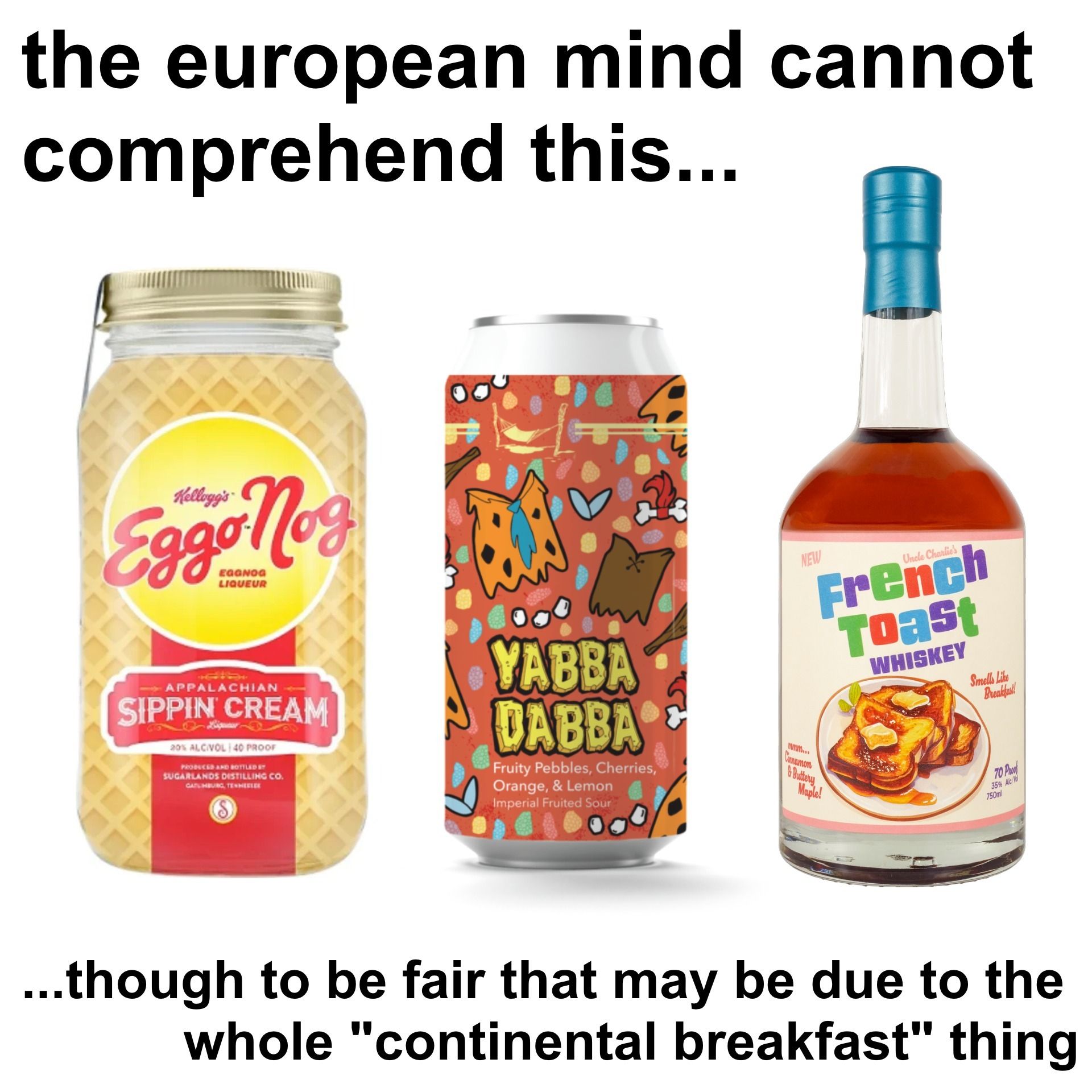- Fingers
- Posts
- The infantilization of the American drinker
The infantilization of the American drinker
Plus: Regulatory Roulette!

In 2019, I wrote a book proposal about the rise and fall of the craft brewing industry. In it, I briefly highlighted a hazy IPA brewed with Lucky Charms as a harbinger of the sector’s broader confusion and decline, writing:
With all that competition on tap handles and shelves, craft breweries have fallen into an ever-widening spiral of gimmick beers to goose sales. Does Lucky Charms beer sound like a natural product of the good-beer revolution to you? Of course not. It sounds like the desperate thrashing of an industry gone stark-raving mad trying to squeeze dollars out of increasingly flaky drinkers.
The book did not sell, which in hindsight may be the definition of irony. Also in hindsight, the notion of a beer brewed with Lucky Charms seems downright quaint. What craft brewers were flirting at half a decade ago, offering flavor-forward pastry stouts and juice-bomb IPAs to attract drinkers that had neither the discipline nor the interest to get acquainted with more complex styles, has turned into a real reversion to the mean by the entire beverage-alcohol industry. Craft beer’s sales have suffered apace. So has the full-bottle spirits segment. So has wine, maybe most of all.
There’s a demand-side story to all of this. After a decade-ish of obsessing over and thoroughly mainstreaming full-flavored beers from the country’s craft brewers, the American drinking public course-corrected to the stupid-simple flavors of White Claw, Skrewball, BeatBox, etc. You’ll hear industry vets grouse that Americans have childish palates, and it bears out in the sales figures.3 The stuff that has really broken out in the past 10 years has typically been sweeter and simpler than that which it’s supplanted in the nation’s lowboys and backyard coolers. The supply side has responded with an informal but unmistakable campaign to quench this juvenile thirst, launching half-baked Zoomer bait (Molson Coors’ Happy Thursday) and buying up brands built on populist pandering (e.g., Whiny Baby, just acquired by GALLO.) One of my longtime sources calls it “the infantilization of the American drinker.” That’s good coinage, as far as I’m concerned. But whatever you call it, we’re certainly living it.
I often frame this pivot to the saccharine as the commodity counterpunch against the more “artisanal” offerings of craft beer, the modern cocktail boom, and to some extent natural wine, too. But taking a longer view, those more bitter/sour/multi-dimensional flavors are clearly deviations from the norm.
Reply